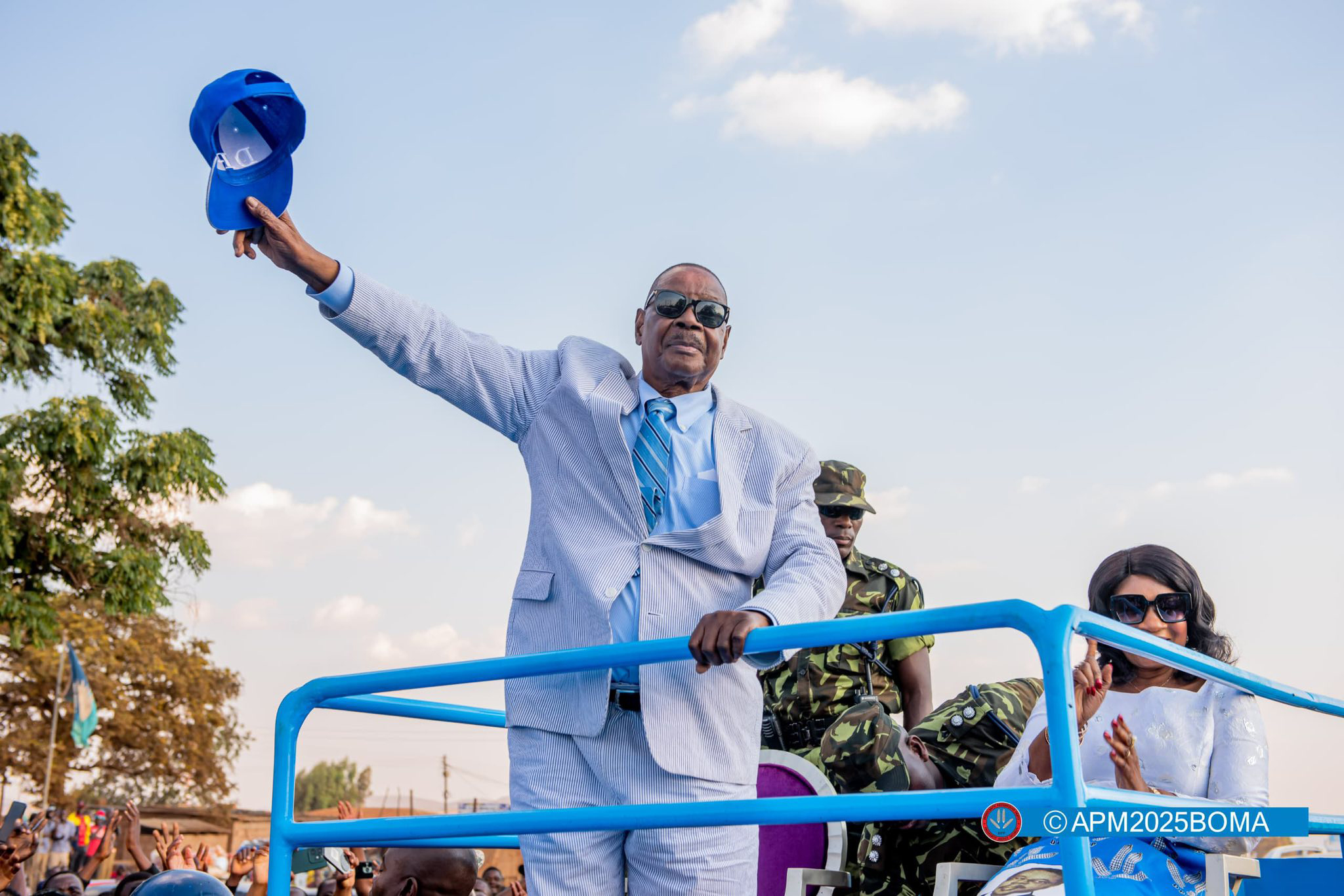By Eyaaz
Copyright mg

Malawi’s Peter Mutharika needed less than 210 000 votes from 12 districts on Tuesday to reclaim the presidency he lost in a 2020 court-ordered rerun.
Five years after a court annulled his 2019 victory, the former president was on the brink of a remarkable comeback with results from 24 of the country’s 36 councils giving the 85-year-old opposition leader a formidable lead over incumbent President Lazarus Chakwera, 70.
According to partial results of the 16 September vote released by the Malawi Electoral Commission (MEC), Mutharika of the Democratic Progressive Party had secured 2 138 746 votes or 66.7% of the 3.2 million valid ballots counted so far.
With 7.2 million registered voters, the winning threshold is about 2.34 million votes or 50% plus one. That leaves Mutharika just 205 841 votes short of the remaining 12 councils.
Chakwera, of the Malawi Congress Party, has an almost impossible path to victory. Having taken just over 20% of the votes counted, he would need 1.6 million from the remaining councils, an outcome that defies voting patterns.
Mutharika’s surge rests on overwhelming support in his Southern Region stronghold. In Thyolo district, he pulled 200 131 votes against Chakwera’s 2 943. In Machinga district, he won 177 387 to 4 541.
Chakwera, who won the 2020 rerun on a wave of optimism, has held his ground in Central Region districts like Dowa, where he polled 216 091. But his margins cannot match Mutharika’s southern landslide.
This election has been a referendum on Chakwera’s economic record: inflation above 20% for three years, chronic fuel shortages and a deepening cost-of-living crisis. Cyclone Freddy in 2023 only sharpened the pain.
Analysts say regional and ethnic loyalties remain as decisive as economic frustration.
“For the time being, it’s still going to be ethnicity, still going to be region,” political analyst Henry Chingaipe told SABC News.
The MEC has confirmed that results from all 36 councils are at the tally centre at the Bingu International Convention Centre in the capital, Lilongwe, but it is still resolving disputes in a handful of districts. The commission insists it will prioritise accuracy over speed.
“The law gives the MEC eight days to finalise results, enough for speed, but also for careful verification,” it said in an update on Monday delivered by chairperson Annabel Mtalimanja.
The memory of the annulled 2019 election looms large, but this time local and international observers have praised the peaceful process. An African Union-Common Market for Eastern and Southern Africa mission cited strong logistics and inclusivity, while urging deeper reforms to fix gaps in the system.
The electoral commission has warned against disinformation and premature celebration.
“No tactic, whether street parties or protests, will pressure the commission to declare before due process,” it said, urging leaders to calm supporters.
Chakwera’s party has alleged rigging and lodged complaints, while several other candidates have already conceded. Dalitso Kabambe of the United Transformation Movement party has even congratulated Mutharika.
A win for Mutharika would be a remarkable reversal of fortune and a harsh verdict on Chakwera’s troubled five years in office. For the MEC, the final call must not just be swift but credible enough to win the trust of the nation.